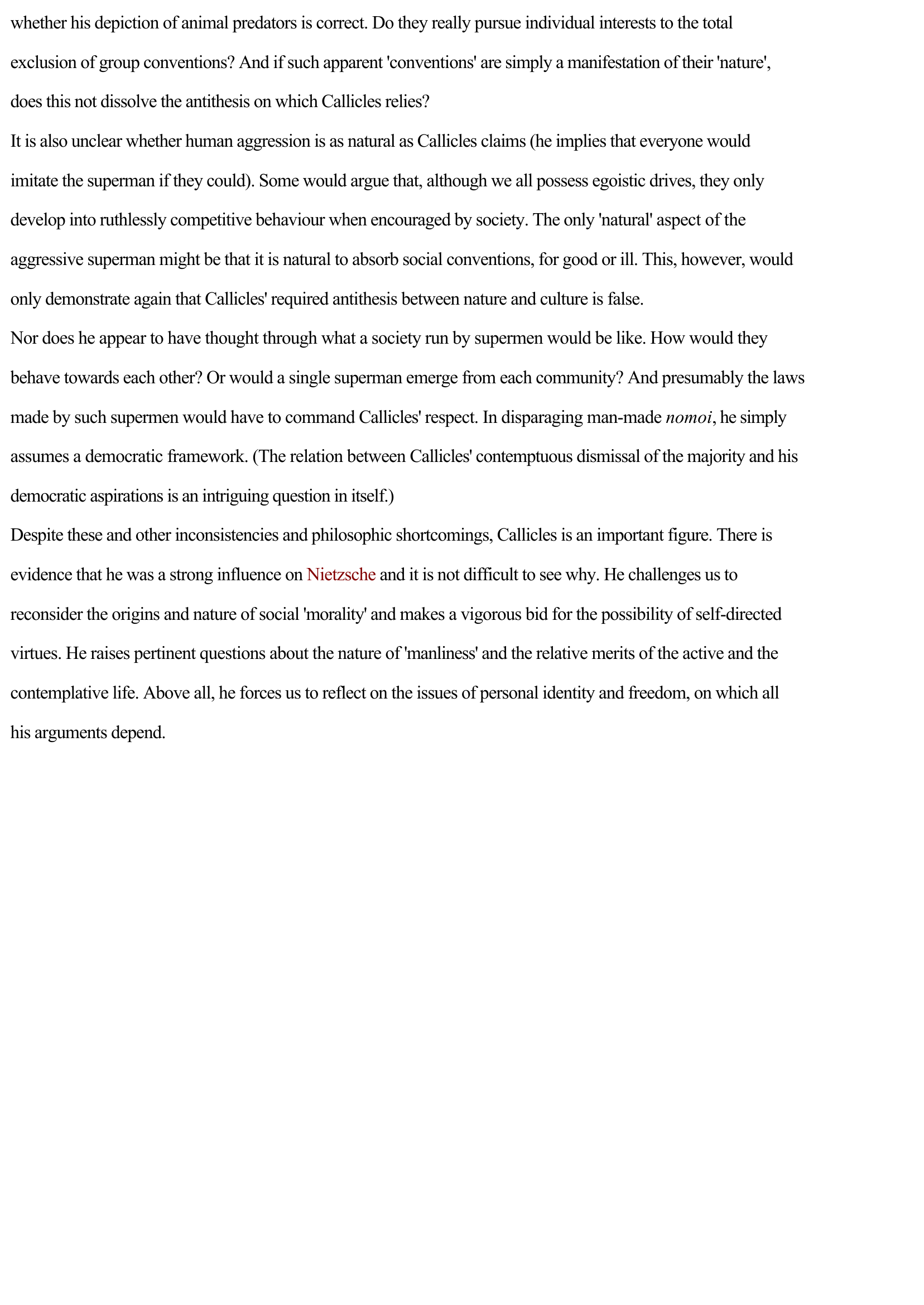Callicles
Publié le 22/02/2012
Extrait du document
«
whether his depiction of animal predators is correct.
Do they really pursue individual interests to the total
exclusion of group conventions? And if such apparent 'conventions' are simply a manifestation of their 'nature' ,
does this not dissolve the antithesis on which Callicles relies?
It is also unclear whether human aggression is as natural as Callicles claims (he implies that everyone would
imitate the superman if they could).
Some would argue that, although we all possess egoistic drives, they only
develop into ruthlessly competitive behaviour when encouraged by society.
The only 'natural' aspect of the
aggressive superman might be that it is natural to absorb social conventions, for good or ill.
This, however, would
only demonstrate again that Callicles' required antithesis between nature and culture is false.
Nor does he appear to have thought through what a society run by supermen would be like.
How would they
behave towards each other? Or would a single superman emerge from each community? And presumably the laws
made by such supermen would have to command Callicles' respect.
In disparaging man-made nomoi , he simply
assumes a democratic framework.
(The relation between Callicles' contemptuous dismissal of the majority and his
democratic aspirations is an intriguing question in itself.)
Despite these and other inconsistencies and philosophic shortcomings, Callicles is an important figure.
There is
evidence that he was a strong influence on Nietzsche and it is not difficult to see why.
He challenges us to
reconsider the origins and nature of social 'morality' and makes a vigorous bid for the possibility of self-directed
virtues.
He raises pertinent questions about the nature of 'manliness' and the relative merits of the active and the
contemplative life.
Above all, he forces us to reflect on the issues of personal identity and freedom, on which all
his arguments depend..
»
↓↓↓ APERÇU DU DOCUMENT ↓↓↓


